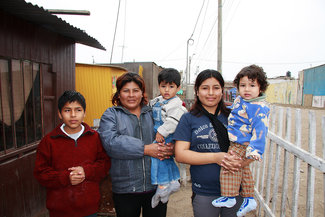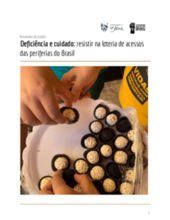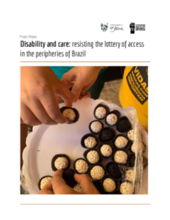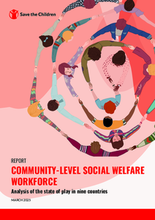

Displaying 11 - 20 of 346
Immigration and Customs Enforcement (Ice) officials are seeking out unaccompanied immigrant children in operations nationwide with a view to deporting them or pursuing criminal cases against them or adult sponsors sheltering
Este relatório examina o contexto histórico e social da deficiência e do cuidado no Brasil, com ênfase na percepção das mães e cuidadoras, destacando as desigualdades profundamente enraizadas enfrentadas por pessoas com deficiência e suas mães, particularmente em áreas periféricas. A história de exclusão do Brasil, enraizada em ideologias racistas, capacitistas e sexistas, continua a marginalizar pessoas negras, mulheres e pessoas com deficiências, com mulheres negras e pobres desproporcionalmente atribuídas a papéis de cuidado.
This report examines the historical and social context of disability and care in Brazil, with emphasis on the perception of mothers and caregivers, highlighting the deep-rooted inequalities faced by people with disabilities and their mothers, particularly in peripheral areas. Brazil’s history of exclusion, rooted in racist, ableist, and sexist ideologies, continues to marginalize Black people, women, and people with disabilities, with Black and poor women disproportionately assigned care roles.
This report, based on a study across nine countries, examines how to strengthen the community-level social welfare workforce (CLSWW) as a vital but under-resourced part of national child protection systems. It calls for context-specific strategies that clearly define roles and competencies, build capacity, and align with local norms, mechanisms, and resources to enhance child protection outcomes.
Summary
This role will lead on the development and implementation of a new child-safeguarding programme in Brazil, as well as contribute to the development of Keeping Children Safe globally.
You’re invited to the upcoming webinar Including support for informal kinship care in policy on 6 November at 13:00 UTC. In this webinar, panelists will explore and demonstrate how kinship care can be included in policy and supported without formalisation.
This study aimed to analyze the narratives of social educators regarding their practices within a foster care institution for children and adolescents in South Brazil.
Case studies from Peru, Cambodia and DRC provide lessons on how income support can contribute to keeping children safe.
This CPC Learning Network hosted a conversation with partners and faculty affiliates on "Rethinking Child & Youth Participatory Methodologies & Processes: Presentations from our Partner Research Centers in Uganda, Indonesia, and Colombia".




